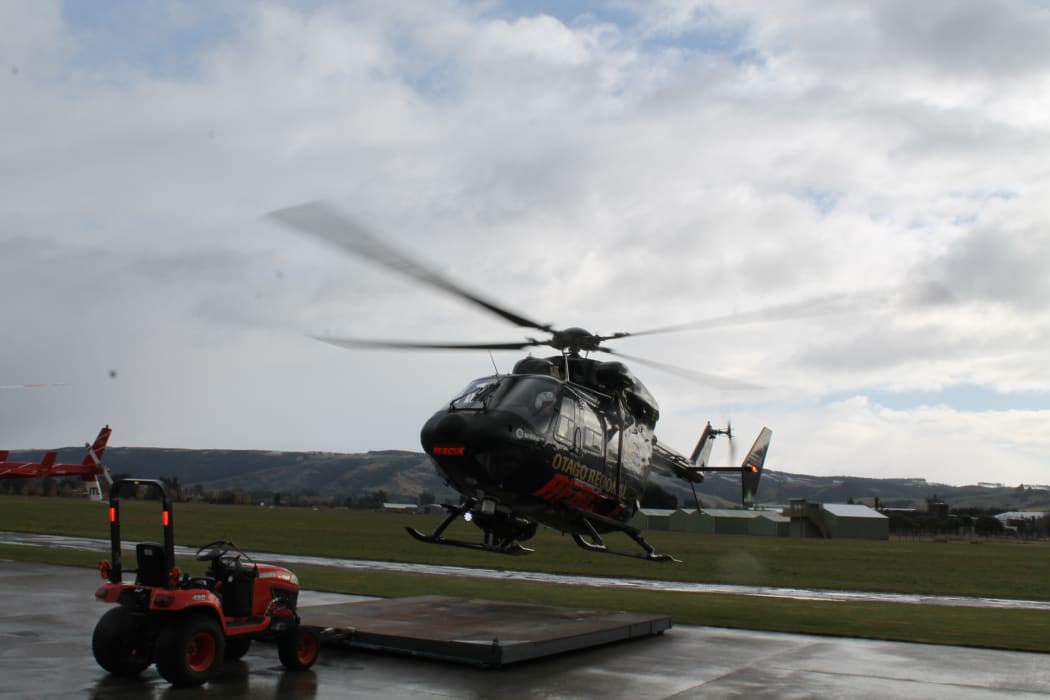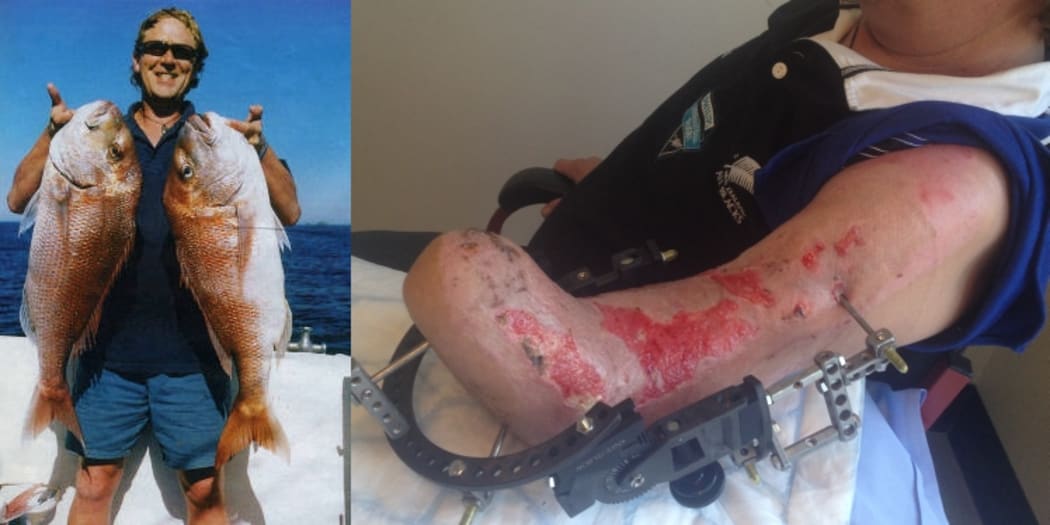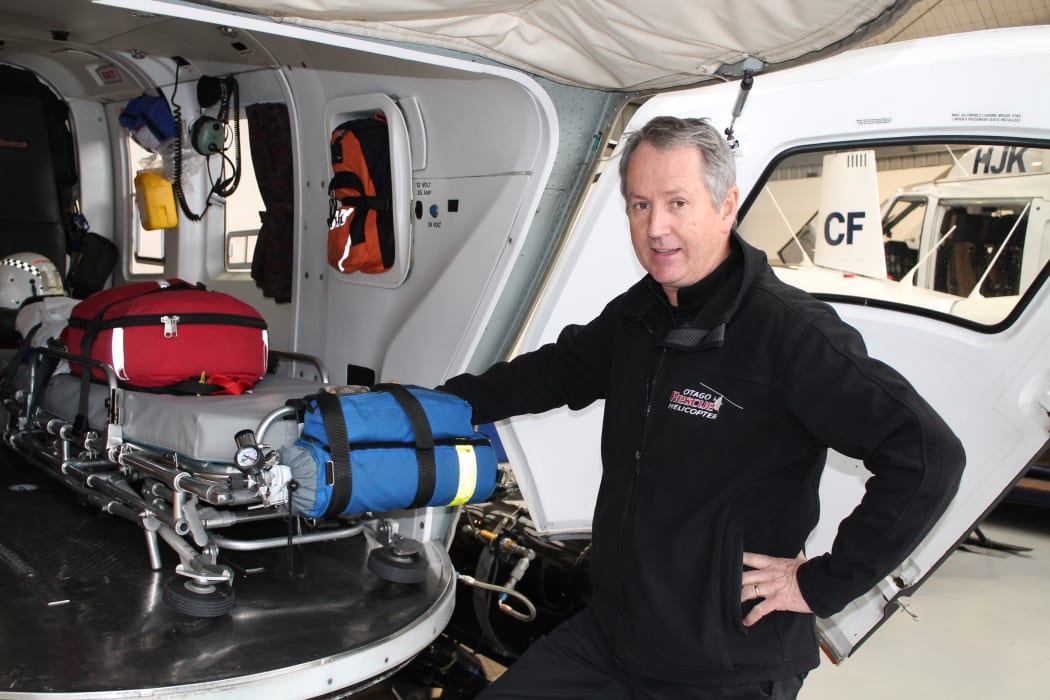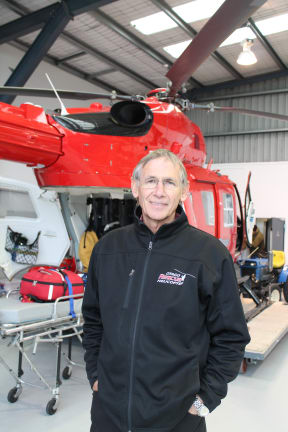
The Otago Rescue Helicopter departs from its Mosgiel base on a mission. Photo: RNZ/Katy Gosset
"Time seemed to stand still. I knew the Otago rescue choppers were coming."
On board a foreign fishing vessel 180 km off the New Zealand Coast, Marty Bowers waited for help as he grappled with a life threatening injury.
"I'd seen [the helicopter crew] before but I never thought I'd be seeing them hovering above the deck of a ship to pick me up."
Mr Bowers lost part of his arm after it got caught in a hydraulic pump and he was forced to break his own limb to save himself.
“It got to the stage where the pain was so bad that it just turned itself into noise.”
But he says that gave him the clarity he needed to take action.
“Perhaps if it hadn’t have hurt so much I might not be here.”

Left: Marty Bowers is a keen fisherman. Right: Undergoing rehabilitation after his arm was partially amputated while at sea Photo: Supplied.
But Marty also owes his life to the work of the rescue helicopter which flew for an hour to reach the ship. The light was fading and there was a strong swell as a crew member was winched down to collect Marty.
“He obviously got a call from on high, in the chopper, that they were running out of light [and] running out of fuel.”
He said the indication was that if they mucked around they might not make it home.
“He just looked at me and said “Sorry, Marty this is going to bloody hurt. And he was quite right.”
As the chopper flew towards Dunedin Hospital Marty learnt that he was a “Status One” patient. “That was when I realised it was actually a bit more serious than what I thought.”

Paramedic Doug Flett has worked for the Otago Helicopter Rescue Trust for 21 years. Photo: RNZ/Katy Gosset
Senior paramedic, Doug Flett, is described by a colleague as a guy who “expects nothing and gives everything.”
He wasn’t the paramedic who rescued Marty but, in 2005, he was named New Zealander of the Year by North and South magazine for an equally challenging mission at sea. He was winched onto a ship and spent the night attending to a seriously ill man who subsequently died.
Doug Flett says its often the off-shore jobs that make the hair on the back of his neck stand on end.
“The Southern Ocean is a pretty unforgiving sort of place, big distances and nowhere really to land down there.”
And he says in some cases the patient has been injured for a long time but it has taken several days for a vessel to within range of the helicopter.
“We pull out all the stops and we can only do what we can do and do it safely.”

Graeme Gale, Chief Pilot of the Otago Rescue Helicopter Trust Photo: RNZ/Katy Gosset
For Graeme Gale, the service really is “all about the patient”. “That’s what we’re here for. There’s nothing else.”
He set up the rescue helicopter in 1994 and says, for him, the satisfaction comes from providing a lifeline to the many small communities dotted about Otago. The service receives support from the Otago Regional Council but still needs to raise between $500,000 and $1 million each year and Graeme Gale says much of this money is raised by local communities and service clubs.
Their patch covers 28 per cent of New Zealand's land mass, yet their sparsely-spread clientele make up just six per cent of the population. That makes for a lot of long flights, remote locations and often adverse weather.
Katy Gosset visits the crew to hear about challenging rescues and the daily drive to make a difference for each patient.

